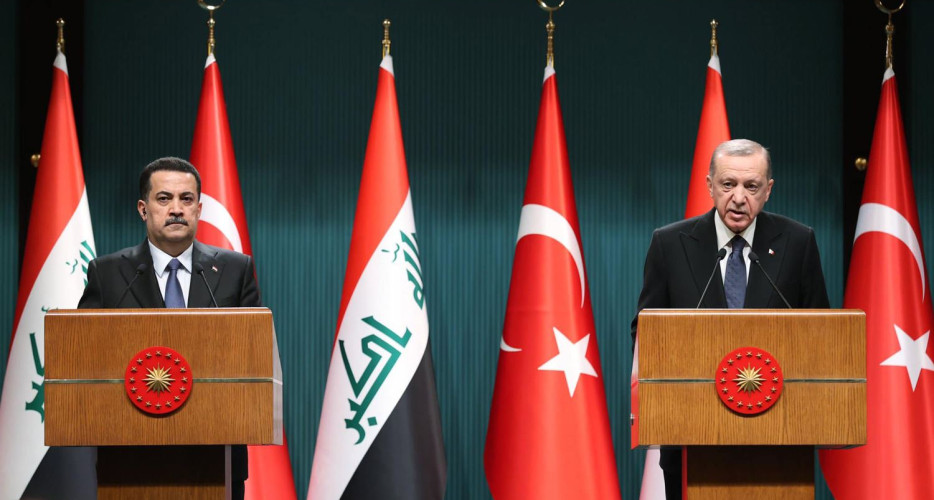
PEREGRAF
Relations between Baghdad and Ankara are tense and complex. Turkish troops are based deep within Iraqi territory. Artillery barrages and airstrikes have killed dozens of civilians. Water flows on the Tigris and Euphrates have been reduced by upstream damming. Oil exports via the Ceyhan pipeline are halted.
It is clear that the Iraqi government does not want to offend Turkey at this delicate moment and is seeking accommodation with its neighbor at the negotiating table. As a result, it largely ignores Turkey’s frequent cross-border attacks in the Kurdistan Region.
Turkish President Recep Tayyip Erdogan is expected to visit Iraq later this year for the first time in more than a decade. Turkish Foreign Minister Hakan Fidan tested the waters in his own visit to Baghdad and Erbil on August 22 and 23.
"Unfortunately, the Iraqi government has only issued statements on the drone attacks. Shamefully, they made no effort. But the issue between Iraq and Turkey is not only about drone attacks, but also water and oil," said Talib Khalil al-Yasari, a member of the Council of Representatives Security and Defense Committee.
"We understand that the drone attacks are a violation of Iraqi territory, but southern Iraq suffers from water shortages. It not only lacks drinking water, but water for agriculture and herding," he told Peregraf, describing the balance of interests.
According to a count kept by Peregraf, between February 1 and August 16, Turkey has carried out at least eight major drone strikes in the Kurdistan Region. The attacks, which focused on Sulaimaniyah governorate, killed eleven people and wounded five others.
On August 6, Turkish drones bombed three locations in Sulaimaniyah governorate, including Dukan, Mawat, and Aghjalar. One civilian was killed in the strike near Dukan.
Five days later, another Turkish drone targeted a vehicle near Nalparez district of Penjwen district. The attack killed three people, including a male employee of Asiacell and a mother and her daughter.
During his visit to Iraq, Fidan’s main focus was pushing for increased action by Iraqi and Kurdish officials to counter the Kurdistan Workers’ Party (PKK). Ankara justifies its violations of Iraqi sovereignty as necessary to combat the Kurdish group.
"The PKK has occupied the areas of Sinjar, Makhmur, and Sulaimaniyah," said Fidan. He also called on Baghdad to designate the PKK as a terrorist organization.
Since the foreign minister’s visit, the Turkish military has continued its cross-border attacks. On August 24, a Turkish drone targeted a vehicle in Sidikan district in Erbil governorate. According to the Kurdistan Region’s Counterterrorism Service, which is affiliated with the Kurdistan Democratic Party (KDP), that attack killed "a senior PKK official and two fighters."
A week later, Turkey repeatedly struck targets in the Qandil Mountains and on Mount Asos. Ankara claimed that it had killed "a large number of PKK fighters," but media close to the PKK denied the report.
Kamran Osman, a member of Community Peacemaker Teams (CPT), told Peregraf that "Turkey has carried out 82 attacks on the territory of the Kurdistan Region this year alone."
According to statistics compiled by CPT, at least 158 villages in Sidikan in the Soran administration. Many other villagers have fled their homes in Duhok governorate’s Zab and Avashin areas and the Zakho administration. Another 600 villages are at risk.
"Fifty-nine percent of the victims of Turkey's drone attacks are civilians, not PKK fighters," Osman said.
Security expert Adnan Kinani said Turkey is trying to expel the PKK from Iraqi territory, but that it is now interfering in local affairs under that guise.
"It has reached Mosul and Kirkuk. Turkey has not hidden this and, so far, the Iraqi government has been unable to counter Turkey," Kinani told Peregraf.
Similarly, the Kurdistan Regional Government (KRG) has also proved reluctant to pressure Turkey about its actions.
"Iraq’s foreign policy is not stable. Iraqi officials are not capable of running the state. They are only good at stealing Iraqi wealth, so they do not understand politics," said Kinani.
Occasionally, Baghdad will voice its displeasure at violations of its sovereignty and attacks on its citizens.
One notable example came after an artillery barrage on a tourist resort in Parakhe in the Zakho administration. Nine civilians were killed and 22 others were wounded. All were ethnic Arabs from central and southern Iraq.
The Iraqi government demanded an apology from Turkey and filed a complaint with the UN Security Council, but to no avail. Turkey denied responsibility for the attack.
Jabar Yawar, a former KRG Peshmerga official, said that the multidimensionality of the relationship between Iraq and Turkey have prevented Baghdad from raising meaningful objections to Turkish violations.
He argued that disputes over oil and water complicate Iraq’s response, allowing Turkey to establish a permanent military presence on Iraqi soil.
"Turkey has entered more than 40 kilometers inside Iraqi territory and has dozens of bases in Duhok and Nineveh governorates and a strong intelligence network," Yawar, who used to serve as the General Secretary of the KRG Ministry for Peshmerga Affairs, told Peregraf.
According to CPT, Turkey has 64 military and intelligence bases in the Kurdistan Region, some of which were established as far back as 1997 in Shiladze under an agreement with the KDP.
"It doesn’t matter how intelligent Turkey drones are, they cannot do anything without a guide," Yawar said, adding that, as far as he knows, the KRG and the ministry have never officially asked Iraq’s federal government to take a stand on the attacks.
According to Kinani, Iraq's inability to complain effectively in international venues like the UN is related to a 1983 agreement between Turkey and Iraq that allows Ankara to intervene against the PKK and Article 51 of the UN Charter that gives Turkey the right of self-defense.
In the meantime, Iraqi and Kurdish civilians continue to pay the price.
On September 5, a Turkish drone bombed a truck in front of the municipality building in the village of Bokriskan, located near Ranya, causing a great deal of material damage.